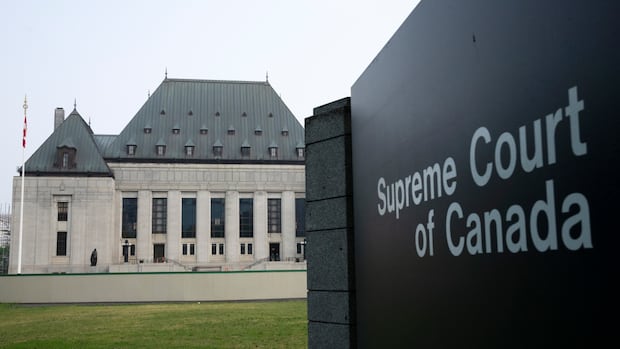Supreme Court Rejects "Myths" in Alberta Historical Sex Abuse Case
The Supreme Court of Canada has issued a landmark decision in an Alberta case involving historical sexual abuse, emphasizing the need for courts to properly handle such offenses against children. The case involves Paul Sheppard, who had his original six-year sentence reinstated after a successful Crown appeal.
Details of the Case: Sheppard and Steacy Easton
Paul Sheppard, now in his 60s, was found guilty of sexual interference and invitation to sexual touching against Steacy Easton. The abuse occurred in the early 1990s at Saint John's School of Alberta in Genesee, where Sheppard was a teacher. The school, now defunct, was run by Company of the Cross, an Anglican organization. The Supreme Court's ruling addressed flaws in a prior appeal decision that had reduced Sheppard's sentence.
Supreme Court's Reasoning and Rejection of Stereotypes
Chief Justice Richard Wagner highlighted issues with the Alberta Court of Appeal decision, particularly its reliance on "myths and stereotypes" concerning sexual abuse complainants. The Supreme Court firmly stated that a complainant's credibility should not be questioned based on whether they confronted their abuser, asserting that there is no standard way for victims of sexual abuse to react. Furthermore, the court noted Sheppard's "pattern of abusing children while in a position of power," a detail previously unaddressed in earlier proceedings.
Victim's Perspective and the Court Process
Steacy Easton, who was granted the lifting of a publication ban in 2021, expressed gratitude for the Supreme Court's decision, calling the appeal document "egregious" and "retrograde." However, Easton also voiced concerns about the lengthy court process and the lack of victim autonomy. "I'm glad that I'm believed, and I'm glad that this 'perfect victims' thing is sort of slowly being dismantled," they said.
Sheppard's Previous Convictions and Allegations
During the Supreme Court hearing, Justice Wagner questioned Sheppard's lawyer, Brian Beresh, about past criminal convictions. Sheppard had been accused of sexual assault and assault against young boys while working as a police officer in Stratford, Ont. in the mid-1980s. He pleaded guilty to six counts of assault in 1987, with sexual assault charges dropped. These convictions were not revealed during his 2021 trial, despite Parole Board of Canada documents referencing them. He also faced sexual abuse charges in the United Kingdom, but was found not guilty in 2015.
The Raoul Wallenberg Centre's Intervention and Legal Implications
The Raoul Wallenberg Centre for Human Rights intervened in the case, with Chief general counsel Angela Marinos arguing that the Alberta Court of Appeal decision incorrectly relied on misconceptions about sexual violence. Marinos emphasized the significance of the Supreme Court's acknowledgment that historical sexual offenses against children are as serious as current ones. The court's decision emphasizes that sentencing should align with the 2020 Friesen decision, mandating increased sentences for sexual offenses against children.
Marinos concluded that while no legal decision can fully heal the trauma of sexual violence, the Supreme Court's judgment offers a form of "balm" and promotes accountability.
 Visit the website
Visit the website




